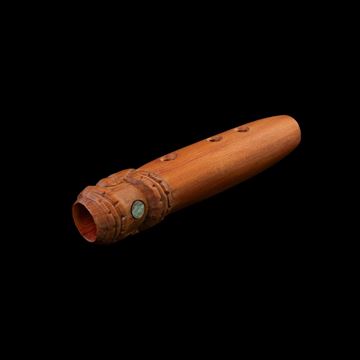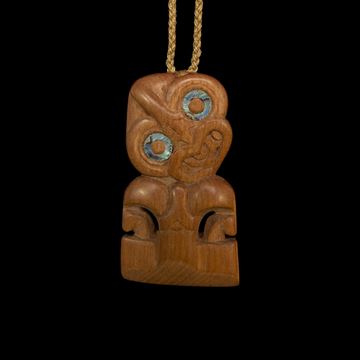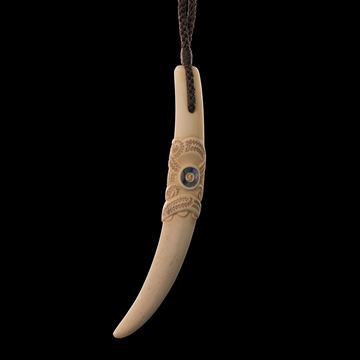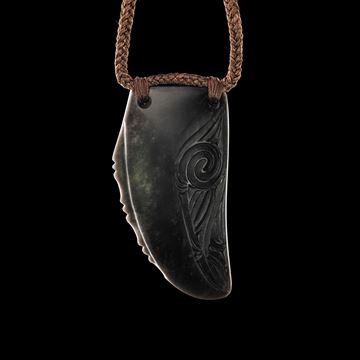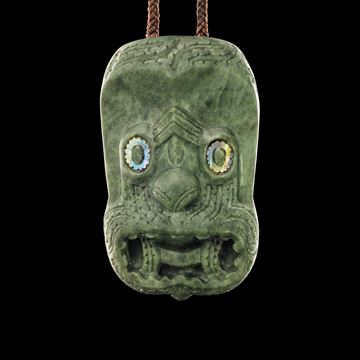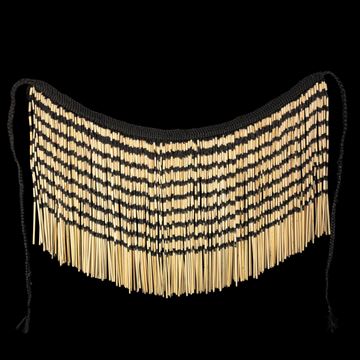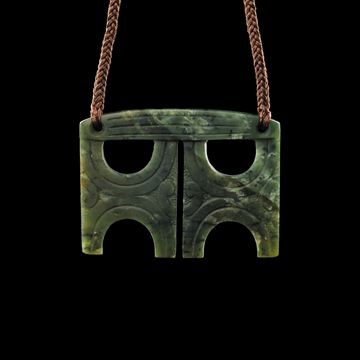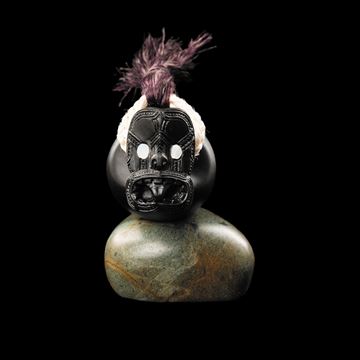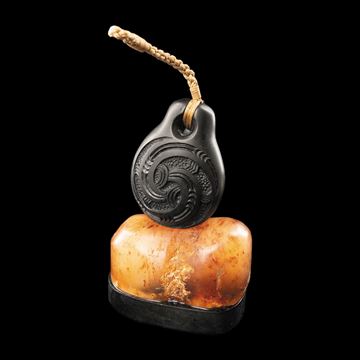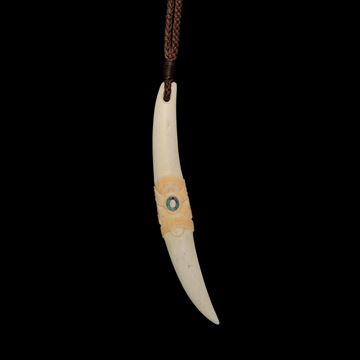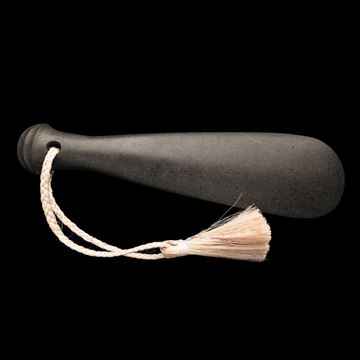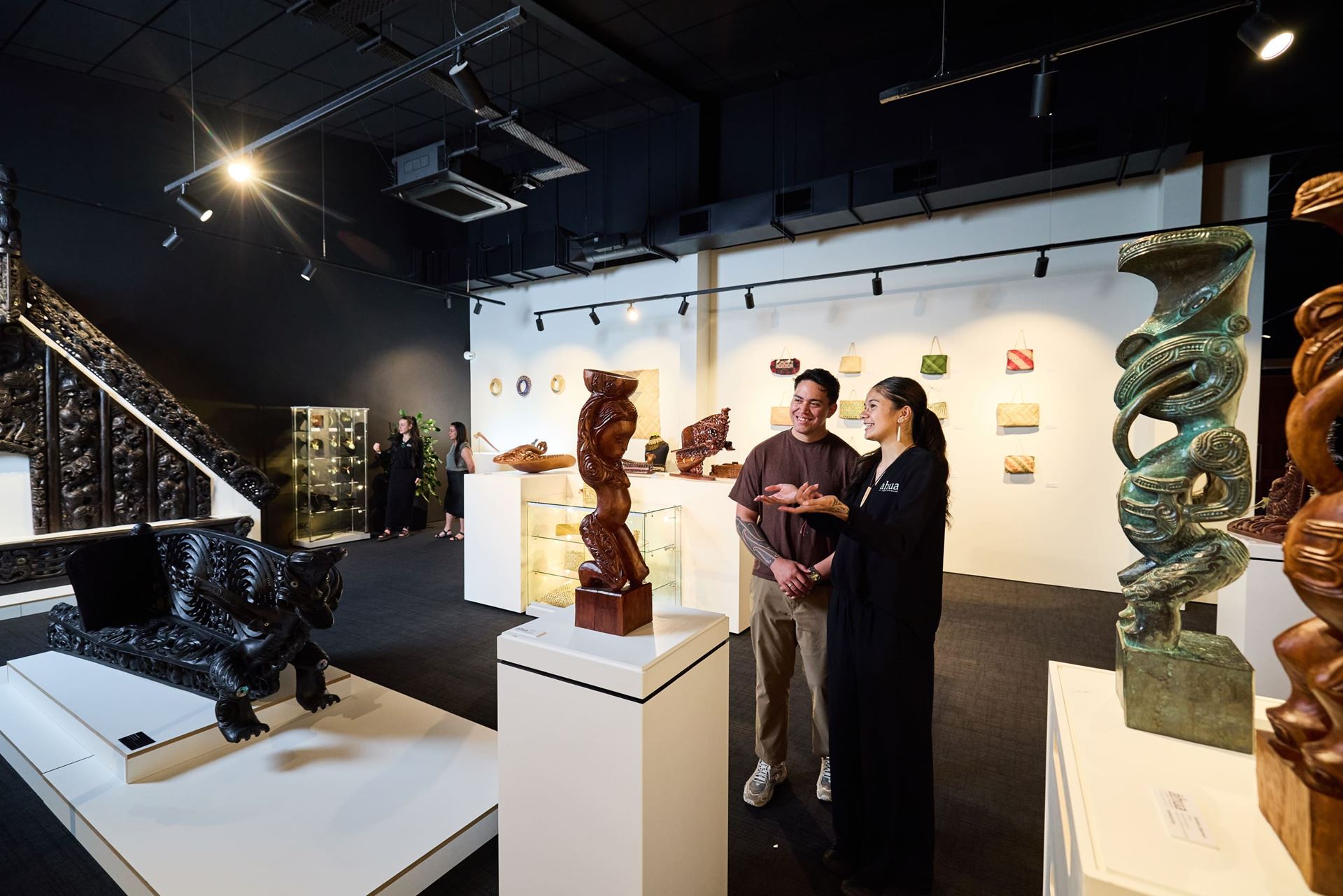
Āhua Gallery
Select Subcategory
Kōauau 4439HY
Kōauau are part of the flute family and come to us from the atua (spiritual entity) of flute music Hine Raukatauri. Kōauau is also the name for a species of hollow kelp, which can also be used to make instruments. Kōauau are made from a variety of different materials including wood, bone or sometimes stone. Most kōauau have three wenewene (finger holes) although there are several older examples that have four or more. The kaiwhakangāwari is the wenewene closest to the mouth, the kaiwhakahī is the middle wenewene and the kaiwhakakaha is the wenewene closest to the distal end.
There are many uses for kōauau. In Māori tradition, birds are sometimes seen as important messengers from the spirit world. Kōauau have a reputation of attracting the native birds of Aotearoa. The birds will often interact with the beautiful melody from the kōauau, giving us a glimpse of the spiritual aspects of the kōauau song.
Material: Mataī (NZ Native)
Measurements: 123mm x 26mm x 26mm
$850.00
Hei Tiki - 3148UN
Hei tiki are the best known of all Māori adornments. Tiki are symbols of fertility that depict a new-born child. They are often family heirlooms bearing personal names and embodying their wearers lineage. As with most Māori personal adornments, hei tiki are often passed down generationally.
Material: Rātā
Measurements: 115mm x 64mm x 20mm
$890.00
Aurei Koruru - 6329HW
Aurei were customarily used as a pin for fastening cloaks and may be made from bone, stone, wood or shell. They may also have been worn through the ear as an earring or around the neck as a pendant. Aurei are still commonly worn as pendants and earrings and as with most Māori personal adornments, are often passed down generationally.
Material: Koiwi (Beef Bone)
Measurements: 157mm x 22mm x 8mm
$890.00
Hei Niho - 6344HW
Shark teeth were highly sought after to wear as a symbol of prestige for personal adornment. They were reflective of the mana of the shark itself. This tooth pendant references the Tiger shark. This shark is an aggressive predator and is found mostly in tropical and warm waters. Tiger sharks are named for the dark, vertical stripes found mainly on juveniles.
Material: Mata (Obsidian)
Measurements: 95mm x 48mm
$890.00
Koruru - 6348HW
In Māori carving there are three predominant designs for heads: the ‘wheku’ with the long eyes; and the ‘ruru’, which also has round eyes but with a point at the top. The different designs were used by carvers to illustrate the character of the subject they were carving.
Koruru are frequently found fitted to the gable of a whare whakairo (carved meetinghouse) as a representation of the tribe’s eponymous ancestor.
Material: Pounamu (Kiri)
Measurements: 93mm x 55mm
$990.00
Tāniko Belt - 2726TE
Tāniko weaving produces a relatively stiff and unyielding fabric, it was traditionally used as a decorative border on fine cloaks of the kaitaka and paepaeroa types. Often several different strips of tāniko appeared on up to three sides of a cloak.
Material: Acrylic Cotton, Leather Lining, Macrame Silks
Measurements: 1150mm x 40mm
$990.00
Piupiu (Tāne) - 5954AF
The word 'piupiu' means 'to swing’ and is also the name for a skirt with free-hanging strands. Piupiu can be worn either around the waist or across one shoulder. They were made in many types of material and styles.
Material: Harakeke
Measurements: 32.5 inches
$1,090.00
Moko Kauae - 6185KH
Traditionally women who acquired moko kauae (female chin tattoos) received them based on their mana, established through their whakapapa. They were nominated by the hapū to ensure there was a woman of mana to represent them on the marae.
Material: Pounamu (Kawakawa)
Measurements: 50mm x 67mm x 7mm
$1,200.00
Māhē - 4503HW
Māhē are sinker stones used to weigh down fishing nets.
Material: Otaua
Measurements: 70mm X 50mm x 50mm
$1,250.00
Māhē - 4457IA
Māhē are sinker stones used to weigh down fishing nets.
Material: Otaua
Measurements: 42mm x 42mm x 56mm
$1,250.00
Aurei Koruru - 5441KH
Aurei were customarily used as a pin for fastening cloaks and may be made from bone, stone, wood or shell. They may also have been worn through the ear as an earring or around the neck as a pendant. Aurei are still commonly worn as pendants and earrings and as with most Māori personal adornments, are often passed down generationally.
Material: Koiwi (Beef Bone)
Measurements: 124mm x 18mm x 10mm
$1,250.00
Patu Onewa - 5461MA
Patu (meaning to strike or hit) were typically fashioned from native hardwood, whalebone or stone, including our highly valued pounamu (greenstone). Patu were often sharp at their forward edge and were used with thrusting, jabbing and swinging blows.
Māori weapons are notable for their fine sculptural form and were designed for close hand-to-hand combat. No other stone-age war implements surpassed them in deadly effectiveness.
Material: Onewa (NZ Greywacke)
Measurements: 370mm x 96mm x 45mm
$1,300.00

